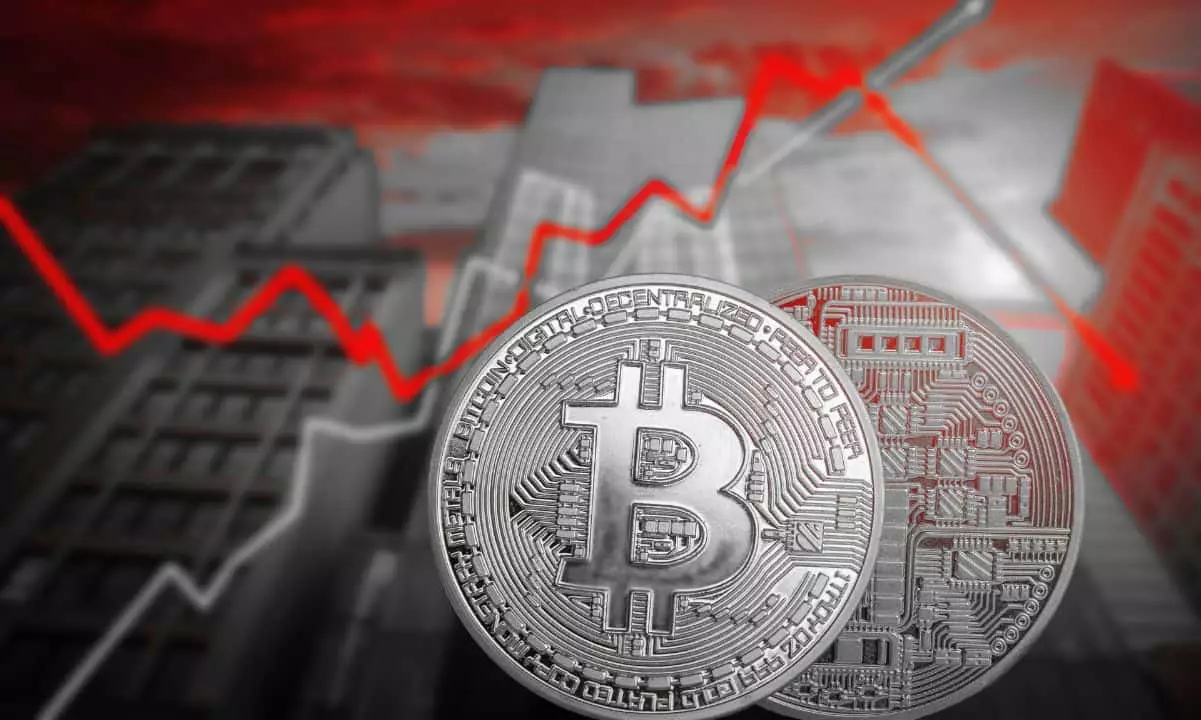As we entered 2025, the world economy began to experience seismic shifts, reminiscent of times when geopolitical tensions dictated market movements. President Trump’s early presidency was marked by an aggressive strategy of trade tariffs aimed at various nations and industries, using emergency powers that sent shockwaves through traditional financial markets. The environment that ensued has redefined our understanding of assets, particularly cryptocurrencies like Bitcoin. No longer can we view Bitcoin in isolation; the interplay between macroeconomic factors and other markets has become undeniably poignant.
Recent reports from Binance Research highlight how fragile our economic system has become, especially as we grapple with consistent inflation levels juxtaposed with slowing economic growth. These factors do not merely ripple through the markets; they create strong currents that can either uplift or weigh down investor sentiment and market behavior. The Federal Reserve, a bastion of monetary policy stability, now finds itself in a Gordian knot, where every decision carries the weight of potential economic upheaval.
Bitcoin: A Shifting Mirage?
One of the most compelling narratives in this new landscape is Bitcoin’s unpredictable correlation with traditional equities. Initially, Bitcoin appeared to diverge from stock market movements, boasting a negative correlation of -0.32 by the time the tension around trade wars escalated in January. However, a dramatic reversal ensued as risk-off sentiment crept into the market, bringing Bitcoin’s correlation with equities to a striking 0.47 by March. This fluctuation exposes the chameleonic nature of Bitcoin as it adapts to the macroeconomic climate, yet raises critical questions about its foundational identity as a ‘non-sovereign’ asset.
The apparent shift from a safe haven to a speculative asset could be an alarming reality for long-term holders. Right now, many crypto enthusiasts might cling to the idea that Bitcoin remains a fortress against inflation and instability. But with the recent evidence that its correlation with gold has softened—shifting into negative territory—there is an unsettling narrative brewing on the horizon: Is Bitcoin losing its way as a reliable alternative during economic stress?
The Illusion of Resilience
While Bitcoin maintained some stability during market upheaval, this was not a straightforward demonstration of resilience; it was more of a precarious balancing act. Long-term holders have, thus far, managed to keep a steady supply of Bitcoin circulating, contributing to a facade of confidence amidst high volatility. This behavior does hint at a community’s unwavering belief in Bitcoin’s value, but one cannot help but wonder: Is this a fool’s paradise? The psychological factors at play within the crypto space could mask deep-rooted vulnerabilities that may emerge as market conditions worsen.
Bitcoin’s potential to re-establish itself as a dependable store of value hinges on its ability to attain and maintain low correlation levels with equities akin to its behavior during the banking crisis of 2023. If the current trend continues, it risks being viewed merely as a speculative vehicle rather than the inflation-hedged asset it’s often touted to be. The danger here is twofold: not only does this threaten Bitcoin’s identity, but it also exposes investors to the very risks they sought to avoid by venturing into cryptocurrencies.
Encryption & Independence in a Protectionist Era
In a world increasingly defined by protectionism, where governments take an insular approach to economic policy, the relevance of Bitcoin becomes even murkier. The looming specter of reduced global monetary cooperation and central bank easing offers a tantalizing opportunity for Bitcoin, but that’s riddled with uncertainty. If the Federal Reserve chooses to cut rates amidst elevated inflation, Bitcoin must prove itself as an appealing alternative that offers not just another layer of security but independence from government influence.
The long-term future of Bitcoin and the broader crypto market lies in understanding its value proposition amidst these turbulent socio-economic challenges. As trade policies and inflationary pressures shape the landscape, Bitcoin’s identity as a commodity for the people will truly be tested. The ultimate question remains: Is Bitcoin ready to reclaim its narrative as a non-sovereign asset worthy of investor confidence, or is it losing its bite in the face of macroeconomic pressures? With the future murky at best, investors are left navigating an uncertain path, relying on intuition more than data as they weigh their next moves in a landscape fraught with risks.

